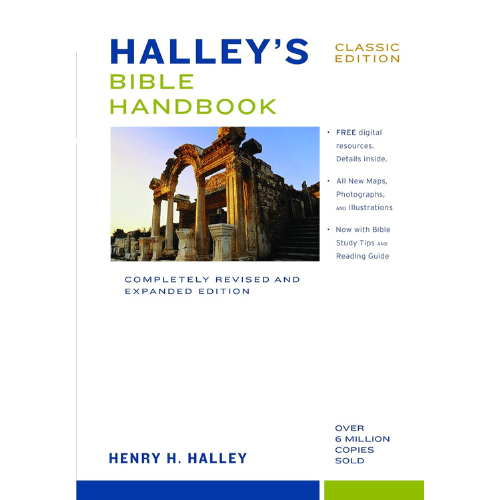What does it really mean to walk in truth and live in fellowship with God—and with one another? The book of First John invites us into a deeper, more honest faith. Written with the care of a spiritual father, it gently but boldly calls us back to the core of the Christian life: love, obedience, and truth. In a world clouded by deception and division, John’s words shine like a beacon of assurance and clarity.
Though it’s short, this letter is rich with purpose. It reminds us who Jesus truly is, how we’re called to live, and why our lives must reflect the God who is light. Again and again, John helps us test our faith—not to crush it, but to strengthen it.
As we walk through this outline together, we’ll see how the book of First John speaks with timeless relevance and offers lasting peace to every seeking heart.
Writer of the Book of First John
The book of First John was written by the apostle John, traditionally known as the “beloved disciple” of Jesus. He likely also wrote the Gospel of John and the book of Revelation. Because of this, his voice carries deep spiritual weight and personal warmth.
John walked with Jesus. He saw His miracles, heard His teaching, and touched His resurrected body. In fact, he opens the letter by reminding us he’s an eyewitness: “that which we have seen and heard we proclaim also to you” (1 John 1:3, ESV).
So, when we read the book of First John, we’re not hearing theory—we’re hearing truth from someone who knew Jesus firsthand. This makes John’s message especially trustworthy. He speaks with love, but also with bold confidence. His goal is clear: to keep us rooted in truth and fellowship with Christ. Through John, we’re invited to follow Jesus more closely than ever before.
Date Written
The book of First John was likely written between AD 85 and 95, during the later years of the apostle John’s life. Most scholars believe he wrote it from Ephesus, where he served as a church leader.
This letter came after the Gospel of John but before the book of Revelation. That’s important because it reflects a growing concern for truth and spiritual clarity. At this point, false teachings were spreading rapidly through the early church. Some denied that Jesus truly came in the flesh.
So, John wrote with urgency and care. He wanted to protect believers from deception and remind them of the truth they already knew. The book of First John is both a warning and a comfort. It speaks to a time when faith was being tested—and offers guidance we still need today. Even now, John’s words help us stay grounded in Christ and firm in our faith.
To Whom Written
The book of First John doesn’t mention a specific church or city. Even so, most believe it was written to a group of house churches in Asia Minor—likely near Ephesus, where John lived.
These believers were probably second-generation Christians. They hadn’t seen Jesus themselves, but they had heard the gospel from eyewitnesses like John. Because of this, John writes with deep care and urgency.
Parables: The Mysteries of God’s Kingdom Revealed Through the Stories Jesus Told by John MacArthur
Throughout the letter, he calls them “little children,” showing his fatherly love and close relationship with them. He isn’t scolding—he’s guiding, reminding, and encouraging.
At the same time, false teachers were confusing the church. So, the book of First John offers both reassurance and correction. It helps believers know what’s true and how to stay faithful. Even today, we can feel that same loving tone speaking to us—reminding us we belong to God and are called to walk in truth.
Purpose of the Book of First John
Why was the book of First John written? Thankfully, John tells us plainly. His letter has four clear and powerful purposes.
First, John writes to bring joy: “We are writing these things so that our joy may be complete” (1 John 1:4). True joy comes from walking in fellowship with God and each other.
Second, he writes to warn against sin: “I am writing these things to you so that you may not sin” (1 John 2:1). Although we stumble, we’re called to pursue a holy life.
Third, John writes to guard against deception: “I write these things to you about those who are trying to deceive you” (1 John 2:26). False teachers were twisting the truth, so John points us back to Christ.
Finally, he writes to give assurance of salvation: “That you may know you have eternal life” (1 John 5:13).
Each purpose reminds us that the book of First John calls us to walk in the light, cling to truth, and love one another deeply. When we do, we find joy, security, and lasting fellowship with God.
Historical Context of the Book of First John
When we read the book of First John, we step into a time of challenge and change for the early church. It was the late first century, and Christians were facing serious pressure—both from the outside and within.
On the outside, persecution from Rome was growing. Following the destruction of the temple in AD 70, the Roman Empire became increasingly hostile toward believers. Faith came with a cost. Standing for Christ often meant standing alone.
Inside the church, false teachings were spreading. One major threat was Gnosticism. This dangerous belief system denied that Jesus truly came in the flesh. Gnostics claimed secret knowledge and separated spirit from body—undermining the truth of the gospel.
To make things harder, apostolic leadership was declining. Many first-generation leaders had died or were aging. With fewer eyewitnesses around, confusion grew.
That’s why the book of First John is so important. John wrote to reaffirm what’s true. He had seen Jesus, touched Him, and walked with Him. His words restore confidence in Christ’s identity, remind us of the importance of loving community, and call us back to the truth we first believed.
Even today, we need the same reminders. Truth still matters. So does love. And Jesus is still the center of it all.
Halley’s Bible Handbook, Classic Edition
The bestselling Bible handbook of all time with millions of copies sold, the Halley’s Bible Handbook makes the Bible’s wisdom and message accessible to everyone.
Key Themes in the Book of First John
The book of First John weaves together several powerful themes that help us stay grounded in our faith. Each one draws us closer to God and to one another. Let’s explore the major themes John emphasizes.
Light vs. Darkness
John opens with a clear statement:
“God is light, and in him is no darkness at all” (1 John 1:5, ESV).
Because of this, we’re called to walk in the light—to live honestly, openly, and righteously.
“If we walk in the light…we have fellowship with one another” (1 John 1:7).
Darkness represents sin and deception. But walking in the light brings cleansing and connection.
Love as the Test of Life
Love isn’t just a feeling—it’s a spiritual marker.
“We know that we have passed out of death into life, because we love the brothers” (1 John 3:14).
Genuine love shows we belong to God. It’s not about words only, but about actions and truth (1 John 3:18).
If we don’t love, we miss the heart of the gospel.
Truth vs. Error
John warns us not to believe every spirit.
“Test the spirits to see whether they are from God” (1 John 4:1).
False teachers had crept in. But the Spirit of God helps us discern truth from lies.
We must always compare teachings with God’s Word.
Obedience
Obedience proves our love for God.
“By this we know that we have come to know him, if we keep his commandments” (1 John 2:3).
It’s not about perfection, but direction. If we love God, we’ll seek to follow His ways.
Assurance of Salvation
John wants us to live with confidence, not fear.
“I write these things…that you may know that you have eternal life” (1 John 5:13).
Belief in Jesus, love for others, and obedience to God confirm our spiritual life.
Incarnation of Christ
A key truth in the book of First John is that Jesus really came in the flesh.
“Every spirit that confesses that Jesus Christ has come in the flesh is from God” (1 John 4:2).
This truth counters false teachers and anchors our faith in the real, risen Savior.
These themes guide us as we walk in truth, love, and faithful obedience. John’s message is timeless—and just what we need today.
Major Events/Stories in the Book of First John
Even though the book of First John isn’t a storybook, it includes powerful sections that feel like turning points in a conversation.
It begins with a stirring prologue (1:1–4). John boldly shares his firsthand experience:
“That which we have seen and heard we proclaim also to you” (1 John 1:3, ESV).
He isn’t repeating rumors—he walked with Jesus and now calls us into the same fellowship.
Next comes a strong warning against antichrists (2:18–27). John alerts us to false teachers who deny Christ and twist the truth. He encourages us to hold fast:
“Let what you heard from the beginning abide in you” (1 John 2:24).
Then, in 3:11–24, John makes a heartfelt call to love one another. He points to Cain, who hated his brother, as a warning. In contrast, we’re called to sacrificial love.
As the letter unfolds, John urges us to test the spirits (4:1–6). He shows us how to discern truth from error by the Spirit of God and the confession of Christ.
Finally, the book of First John closes with strong assurance (5:13–21).
“That you may know that you have eternal life” (1 John 5:13).
This ending wraps up everything with clarity, confidence, and encouragement for every believer.
Theological Contributions of the Book of First John
The book of First John gives us rich theological insight that still shapes how we live and believe today. It’s more than a letter—it’s a guide for the church and a compass for our hearts.
First, it sharpens our Christology. John insists Jesus is both fully God and fully human. “Who is the liar but he who denies that Jesus is the Christ?” (1 John 2:22, ESV). Any denial of Christ’s true nature leads us away from God. Right belief about Jesus matters deeply.
Next, we see a strong foundation for salvation. We’re not saved by knowledge alone but by a faith that works through love and obedience. Salvation comes by grace, but the evidence is clear. When we believe in Christ, love the brethren, and keep His commands, assurance follows (1 John 5:13).
The book of First John also highlights sanctification. “No one born of God makes a practice of sinning” (1 John 3:9). This doesn’t mean perfection. It means we are being changed. Righteousness and love mark our daily walk.
In terms of church life, John reminds us we don’t walk alone. Community matters. We’re called to discern truth together and care for one another in real, tangible ways.
Finally, John offers a balanced view of the doctrine of sin. We all stumble. Yet we must not live in sin.
“If we confess our sins, he is faithful…to cleanse us” (1 John 1:9). But ongoing, willful sin is a sign of spiritual danger (1 John 3:6). The book of First John helps us think clearly, love deeply, and live faithfully in a confusing world.
Special Consideration in the Book of First John
The book of First John includes a few challenging verses, but they offer rich insight when we approach them carefully and prayerfully.
One big tension is around sin. In 1 John 3:6, we read,
“No one who abides in him keeps on sinning.”
Yet in 1 John 1:8, it says,
“If we say we have no sin, we deceive ourselves.”
So how do we reconcile these? The key is in the Greek verb tenses. John isn’t talking about isolated sins. He’s warning against a life of habitual, unrepentant sin. True believers will sin—but they won’t make sin their way of life.
Another tough verse speaks of a sin that leads to death (1 John 5:16–17). John doesn’t fully explain it. It may refer to blasphemy, apostasy, or ongoing rebellion. Either way, he urges caution and humility, not speculation.
Then there’s John’s use of the word “antichrist.” Here, it’s not a future figure. It’s anyone who denies that Jesus is the Christ. “Whoever denies the Son does not have the Father” (1 John 2:23).
The book of First John calls us to think deeply, walk humbly, and hold fast to truth—even when questions remain.
Final Thoughts Book of First John
The book of First John still speaks with clarity and power in our confused and divided world. While falsehood and fear surround us, John calls us to something better—to walk in the light, love without hypocrisy, and hold fast to Christ.
This short letter takes only minutes to read, yet it carries life-changing truth. We encourage everyone to read it in one sitting. As we remain in Christ, love one another, and cling to truth, we can walk with confidence.
John doesn’t leave us guessing—he wants us to know we have eternal life. That assurance is ours when we live by faith, love, and obedience.
Let’s keep growing together. Explore our chapter outlines and find more tools to deepen your spiritual walk. The book of First John is only the beginning. There’s so much more ahead as we walk in the Word.
Frequently Asked Questions (FAQ) Book of First John
What is the main message of the book of First John? The main message is to walk in truth, love one another, and remain in fellowship with God through faith in Jesus Christ.
Who wrote the book of First John, and why does it matter? The apostle John, an eyewitness of Jesus, wrote it. His close relationship with Christ gives the letter deep authority and pastoral care.
Why does John talk so much about love and obedience? Because love and obedience are evidence of true faith. They show we belong to God and reflect His nature in us.
What does John mean by “antichrist” in this letter? In this context, “antichrist” refers to anyone who denies that Jesus is the Christ or spreads false teaching about Him.
Can we really have assurance of salvation? Yes! John says we can know we have eternal life when we believe in Jesus, love others, and follow God’s commands (1 John 5:13).




